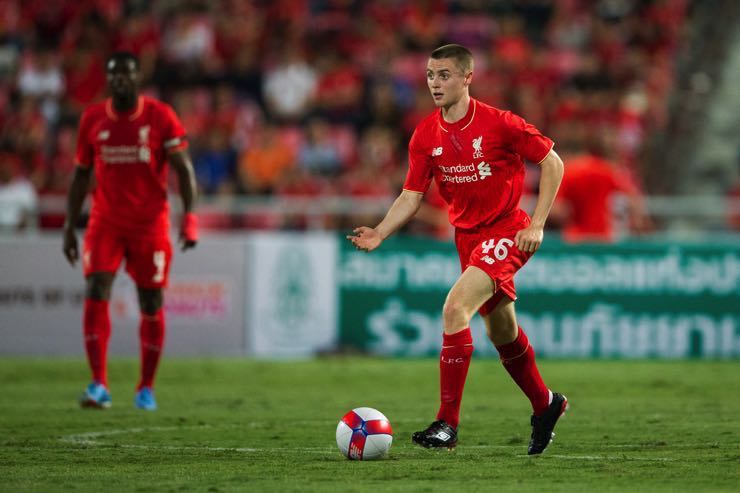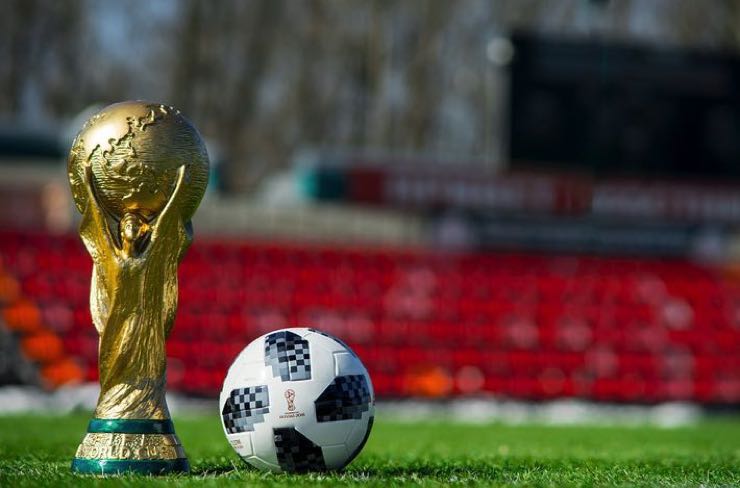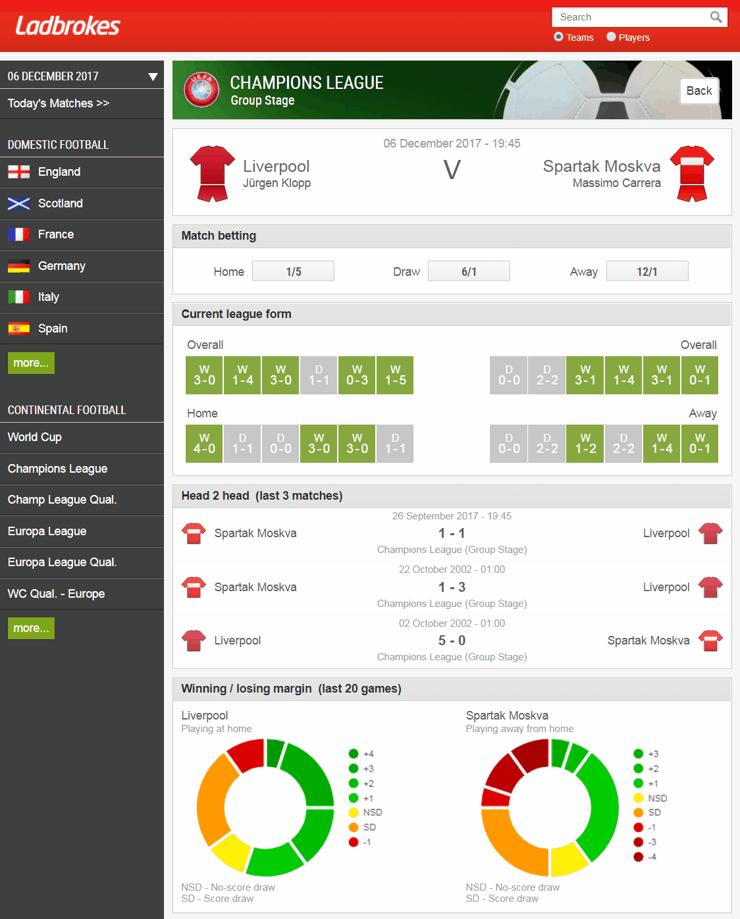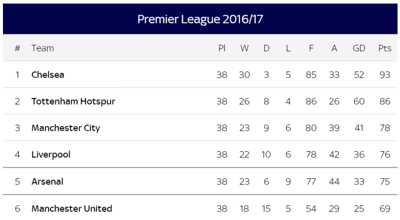 Football – or soccer to some – is the world’s biggest sport, with the World Cup final attracting a television audience of around 700 million people. Unsurprisingly it is also the biggest sport for gambling, with punters all over the globe enjoying a bet on their local team or one of the giants of football such as Real Madrid, Manchester United or Boca Juniors.
Football – or soccer to some – is the world’s biggest sport, with the World Cup final attracting a television audience of around 700 million people. Unsurprisingly it is also the biggest sport for gambling, with punters all over the globe enjoying a bet on their local team or one of the giants of football such as Real Madrid, Manchester United or Boca Juniors.
Whether you are looking to place a bet once in a while for a bit of fun or want to know how to back your favourite side in the world of football betting, we have all the information you need right here.
- In This Article:
- Bookmakers
- How To Bet
- Betting Rules
- Betting Strategy
How To Bet On Football

As said, football attracts more money than any other sport from a betting perspective and consequently the bookmakers cover a huge range of different events and offer many types of bets. Many of the big bookmakers offer bets on leagues in countries you might not even have heard of, let alone thought about betting on!
Football Bets
In addition to the massive number of countries covered, there is also a huge variety of bets (markets) on each match, with top bookmakers offering over 100 as standard on matches in the major leagues and even over 200 for some important games. Here we take a look at some of the most commonly placed bets.
| Bet Types | Description |
|---|---|
| Match Result | This market has many names, including “match betting”, “90 minutes”, “1X2” and “to win” and is the most popular football bet going. It is simple as you have just three options: backing the home side will win, the away side to win, or the draw. |
| Correct Score | Another popular one and again very simple: what will the score be at full-time? Odds will reflect the likelihood of a result, with a correct score of 4-4 priced at much longer odds than, say, 1-1. |
| First Goalscorer | A bet on which player will score the first goal of the game. One can also bet on the last goalscorer and, at lower odds, for a named player to score at any time during the match. Backing “no scorer” is also available in this market. |
| Half-Time/Full-Time | Often written as HT/FT, this is a duel prediction of which side – if either – will be winning at half-time and at full-time. There are nine possible outcomes and your selection will be expressed in the form “draw/Man Utd” or “Man Utd/Everton” for example. |
| Over/Under | There are several different ways to bet on the number of goals a game will contain and the most common is by backing over or under a specified number.
To avoid the possibility of a tie these are usually expressed in half goals and whilst you can bet on over or under 0.5 goals right up to 6.5 goals or higher, the most popular bet focuses on over or under 2.5 goals. If you think a game will have three or more you back “over” whilst two or fewer and you would bet on “under”. |
| Both Teams to Score | This is a relatively new bet but growing in popularity and gaining lots of attention from the bookies. If you think both teams will score at least one goal in the game you would bet “yes” or simply tick that match. Some bookies also offer the chance to bet against both teams to score, in which instance you select “no” and win if one or both teams fail to score. |
| Handicap | This is used to even out the odds, especially where one side is such a strong favourite that the result itself is deemed hardly worth betting on, so likely it is that one side will win. For example, if Barcelona play Bradford, the bookmakers might give odds where Barcelona have a handicap of -3 goals, whilst Bradford are +3. |
| Asian Handicap | Similar to the above but only two outcomes can be bet on, either side A to win or side B to win, but no draws. Asian handicaps usually use fractions of goals to eliminate the draw, so you may see Barcelona -3.5.
This would mean that if they beat Bradford by three goals or fewer, Bradford have won, but four or more and Barca triumph, with no possibility of the draw. Asian handicaps can be more complicated as they sometimes involve two handicaps with your bet split between those outcomes. |
| Draw No Bet | Also called DNB this is another way of eliminating the draw (the concept of which is popular with US and Asian punters). This can be expressed by the Asian Handicap of “0” but is better known to most people as “draw no bet”. If the game is a stalemate you do not win but you do not lose – you get your stake back. |
| To Win to Nil | We’re back on the simple bets now. This is self-explanatory: you are backing one team to beat the other without conceding a goal. |
Football Betting Rules

On the whole betting on football is a relatively simple matter but there are one or two questions that beginners often ask or rules that may seem slightly counter-intuitive. Whilst 99% of your bets will pass simply and effortlessly (and hopefully you’ll win 99% too!) it is worth knowing these basics to avoid disappointment. Some rules can vary from company to company so check to be sure but these general points are applicable to most bookmakers.
Own Goals
The first regards own goals. Whilst these can be massively crucial in football (indeed Colombian footballer Andres Escobar was killed because of one!) they do not count at all in player goal markets. So if you back a player to score first and he nets an own goal you don’t win but the next player to score a “proper” goal does. This also applies to last scorer bets.
Own goals do, however, apply to other markets such as both teams to score, correct score and, of course, match result. For this reason if a bookie offers 0-0 at the same odds as “no scorer” in the first goalscorer odds, always bet on “no scorer” as this will cover 0-0 and also any score that includes only own goals.
90 Minutes Only
The other main rule to be aware of is that almost all bets, unless clearly stated, apply to the full 90 minutes, plus injury time but not extra time or penalties. This is mainly relevant to cup games and applies to a huge range of bets, including first scorer, last scorer, correct score, match result… basically any bet that didn’t clearly state otherwise.
Reported Results
Another thing to note is that most bets are settled according to how the match is reported at the time. So in the case of a goal subsequently being awarded as an own goal, rather than given to the striker, or a red card being rescinded on appeal it will be the officially reported player/score/event that stands as the winner.
Postponement & Abandonment
The final thing to be aware of, though something that will apply even less frequently than the aforementioned quirks, is that bookmakers apply different rules in the event of a match being postponed or abandoned. Some will void all bets, others will allow the result to stand if it reached a certain point in the game or the match is replayed within a certain timeframe.
Generally speaking the following rules tend to apply, but do bear in mind that it will vary from betting site to betting site:
- Cancelled Events – Bets are normally made void.
- Postponed Events – Depends on the time frame and the policies of the bookie. If a match is rescheduled within a short timeframe – often 24 or 48 hours – then the bet stands, otherwise it will be made void.
- Abandoned Events – Bets that have not yet settled follow the same rules as postponed events and will be made void unless a rematch is rescheduled within 24 or 48 hours. For bets that have would have settled, such as the first half result (assuming the match was in the second half when it was abandoned), the bookmaker may choose to let the bet stand as is. This isn’t always the case though.
Football Betting Strategy
You could literally fill a book with all of the different strategies for betting on football and many people have dedicated their lives to the pursuit of scoring that net win in football betting. We can’t possibly cover it all here, but in this next section we’ll run you through the basic principles that you should bear in mind when betting.
Knowledge & Stats
There are two main secrets to betting on football and they are related. First of all, knowledge is power and the more you know about a match, team or player the better equipped you will be to decide which selection make a good bet. There is so much information out there these days that with a lot of research and study you can give yourself a real edge.
And it’s not even information that’s hard to come across – plenty of bookies have licensing deals with stats companies for their own use, and give their customers access to it as well. Below you’ll find a screenshot of the stats on offer for an upcoming match between Liverpool and Spartak Moskva – this is just a small portion of what’s actually available from the site.

Knowing the previous performance of both teams can help you spot weaknesses or strengths. Do both teams always score when they play each other? Have the home side not let a goal in for 10 matches? And so on.
Of course, the higher up the football ladder you go, the more information there is, the more the bookmakers will be aware of and the more your fellow punters will know too. This makes it harder to get a net win from betting on the Premier League than it is on the lower divisions.
Stats alone aren’t enough though – if it were, you could very easily slap together a computer program to analyse the data and predict the results. And whilst this does happen to some degree, it doesn’t give the whole picture.
Other Considerations

You’ll also want to look at team news – is the star striker out of action for any reason, or has the goalie recently had a baby (potentially resulting in sleepless nights). Managerial changes can have a big impact too, either sending the team into disarray or injecting new found confidence and enthusiasm into a team that was previously struggling. Other things that you may not have thought to consider include:
| Considerations | Notes |
|---|---|
| Weather | The difference between a cool dry day and a windy wet one is massive when it comes to how a match will play out. For example, a strong wind will hamper teams that favour long passes more than it will teams with different tactics. |
| Pitch Size | Did you know that football pitches aren’t all the same size? There are rules relating to the minimum and maximum width and length of a pitch, but no defined standards. So, players who are used to a longer wider pitch will have an obvious advantage at home over players whose home ground is narrower and shorter.
Think it can’t make that much of a difference? Think again – the premier leagues biggest pitch (Hull City’s KC stadium) is a whopping 10m wider and 14m longer than the leagues shortest (Stoke City’s Bet365 Stadium). |
| Schedules | Teams that have played more recently, especially if it’s been a few games on the trot, are more likely to be tired. And whilst leagues tend to take this into account when scheduling the fixtures, look for the impact of other competitions such as the FA Cup or Champions League.
Likewise look at how much the team have been travelling recently, if the players have just flown back from Russia and have to immediately head to an away game they’re unlikely to be playing as well as if they’d been sleeping in their own bets and playing at home. |
| Game Importance | Looking solely at stats implies that all games are equally as important as each other, when in reality that isn’t the case. Matches that are less of a concern to the team are likely to have key players on the bench or holding back and not playing to their full potential.
Make sure you take into account upcoming matches as well, as an impending big match may have the team saving themselves in the week before. |
Value Betting
But what do we do with all this information anyway? Football, of course, is a highly unpredictable game and that is why we love it so much (and also why the bookmakers remain in business). If the favourites always won there would be no gambling (so thank heavens they don’t!). What this unpredictability means is that you can never know for sure who will win and the way to get a net win is not to try and find the winner at any price but to find the bet where the odds are higher than they should be.
This is called value betting and is the only real way to get a net win over the long term. If you are simply betting on football for a bit of fun or only occasionally this isn’t massively important but if you bet a lot, over a long timeframe then it is essential.
When picking a bet the odds are just as important as whether you think the selection will win or not. To give an example, whilst you would expect Chelsea to beat QPR practically every time they played, you wouldn’t want to bet on Chelsea at any odds at all, for example 1/20 (or 20/1 on). Too few gamblers fail to give enough weight to the odds, placing too much emphasis on the bet itself.
Finding value is hard but not impossible. As said, it’s easier with the smaller teams and the more information you have the easier it becomes. Is a striker injured this week so a defender playing up front? If you know this but maybe the bookmakers don’t then his first scorer odds will probably be great value. Have several key players been struck down by a virus? Has the manager just been sacked and will the new manager bring a boost to the team? Are the bookmakers ignoring some useful piece of information or a key statistic or have they simply got their odds wrong and favoured one team incorrectly? Get as much information as possible and look for value bets and you’ll soon be as rich as Wayne Rooney’s hair doctor!
Leagues & Tournaments
 From the English Premier League to the FIFA World Cup, professional football is arguably the most popular sport on the planet. It’s certainly one of our favourites, not least when it comes to betting! The big European leagues usually run from August through to May. Meanwhile, on the international stage, there’s a World Cup and a UEFA European Championship every four years (alternating so there is a major tournament every two years).
From the English Premier League to the FIFA World Cup, professional football is arguably the most popular sport on the planet. It’s certainly one of our favourites, not least when it comes to betting! The big European leagues usually run from August through to May. Meanwhile, on the international stage, there’s a World Cup and a UEFA European Championship every four years (alternating so there is a major tournament every two years).
The likes of the Premier League, La Liga and the Bundesliga are the biggest club leagues in Europe, if not the world, with several other leagues getting bigger and better as each year passes by. Let’s take a look at football’s best club and international leagues and tournaments.
FIFA World Cup
 Everybody knows about the FIFA World Cup. Whether you love your football or simply can’t stand it, when the World Cup takes place every four years, the whole planet seems to get involved in one way or another. The very first WC took place in Uruguay way back in 1930, and has gradually grown into the world’s leading competition in any sport.
Everybody knows about the FIFA World Cup. Whether you love your football or simply can’t stand it, when the World Cup takes place every four years, the whole planet seems to get involved in one way or another. The very first WC took place in Uruguay way back in 1930, and has gradually grown into the world’s leading competition in any sport.
The most recent World Cup was held in Brazil (in 2014), and was won by Germany, who claimed their fourth title. The next one takes place in Russia in 2018, with Qatar hosting the 22nd edition of the tournament four years later in 2022.
UEFA European Championship
 UEFA, the Union of European Football Associations, is the governing body for European football. Every four years they hold the “Euros”, as it is known, to determine the best national side in European football. In terms of quality and prestige, the Euros are second only to the World Cup when it comes to international football.
UEFA, the Union of European Football Associations, is the governing body for European football. Every four years they hold the “Euros”, as it is known, to determine the best national side in European football. In terms of quality and prestige, the Euros are second only to the World Cup when it comes to international football.
The first European Championship was held in 1960 in France, with Soviet Union beating Yugoslavia 2-1 after extra time. Those countries are, of course, long gone, but the Euros remain. In the early days there were just four teams involved but this has grown steadily and reached 24 in 2016, when Portugal were surprise winners.
The 2020 Championship will make history by being the first tournament of this nature to be held across a range of countries, rather than being based in one nation or group of neighbouring states. 13 cities in 13 different countries will host the 2020 Euros, with Wembley set to host both semis and the final.
UEFA Champions League
 On the club stage, the UEFA Champions League is without doubt the biggest club competition in the world. Previously known as just the European Cup (or officially the European Champion Clubs’ Cup), it was rebranded in 1992. The Champions League draws crowds and viewing figures like nothing else. Europe’s elite clubs take part every year, with 32 teams contesting the group stage and vast sums of prize and TV money up for grabs.
On the club stage, the UEFA Champions League is without doubt the biggest club competition in the world. Previously known as just the European Cup (or officially the European Champion Clubs’ Cup), it was rebranded in 1992. The Champions League draws crowds and viewing figures like nothing else. Europe’s elite clubs take part every year, with 32 teams contesting the group stage and vast sums of prize and TV money up for grabs.
The final takes place in different cities around Europe each year, with Cardiff’s Principality Stadium hosting the 2017 final between Juventus and Real Madrid. Real are the most successful side in European Cup history, winning the competition an unrivalled 12 times (as of 2017). Victory in Wales meant they became the first team to retain the trophy in the Champions League era, and the first since AC Milan did it in 1990.
English Premier League
 In terms of the most popular domestic league, the English Premier League is the clear champion, although the people in Spain may have a different opinion. When it comes to popularity worldwide, however, the EPL is on another planet. England’s top league is watched from Canberra to Cairo, from Bangkok to Boston and from Buenos Aires to Beijing.
In terms of the most popular domestic league, the English Premier League is the clear champion, although the people in Spain may have a different opinion. When it comes to popularity worldwide, however, the EPL is on another planet. England’s top league is watched from Canberra to Cairo, from Bangkok to Boston and from Buenos Aires to Beijing.
The season in England’s top flight begins in August and concludes in May each year, with huge footballing powerhouses such as Manchester United, Manchester City, Chelsea, Liverpool, Arsenal and Tottenham Hotspur all battling it out to be top dogs. The current champions are Chelsea, who won the league by seven points in the 2016-17 season. Famously 5,000/1 underdogs Leicester City win the title in 2015-16, proving that despite all the money in the game, football remains hugely unpredictable.
English FA Cup
 The English FA Cup, known as the Emirates FA Cup for sponsorship reasons, is the oldest association football competition in the world, with the first edition kicking off in 1871. In the 2016-17 season, 736 teams participated, with Arsenal coming out on top.
The English FA Cup, known as the Emirates FA Cup for sponsorship reasons, is the oldest association football competition in the world, with the first edition kicking off in 1871. In the 2016-17 season, 736 teams participated, with Arsenal coming out on top.
The Gunners, who beat Chelsea in May’s Wembley final, are the most successful team with 13 cups. Ashley Cole has won the FA Cup more than any other player, winning it seven times in total (three times with Arsenal, four with Chelsea). Cardiff City, who lifted the trophy back in 1927, are the only non-English club to have ever won the FA Cup.
Spanish La Liga
![]() The Spanish league (La Liga) follows the PL very closely in second place as the most popular domestic league. In terms of quality of football, La Liga could well take the No. 1 spot, with ‘super clubs’ Barcelona and Real Madrid among the biggest and best clubs in the world. When you throw the likes of Atletico Madrid and Sevilla – and one or two others – into the mix, it’s no wonder why La Liga is as illustrious as it is.
The Spanish league (La Liga) follows the PL very closely in second place as the most popular domestic league. In terms of quality of football, La Liga could well take the No. 1 spot, with ‘super clubs’ Barcelona and Real Madrid among the biggest and best clubs in the world. When you throw the likes of Atletico Madrid and Sevilla – and one or two others – into the mix, it’s no wonder why La Liga is as illustrious as it is.
Like the Premier League in England, Spain’s top flight runs from August to May, with 20 teams participating. The top four sides qualify for the Champions League, with the bottom three relegated to the second tier. Real Madrid won the title for the first time since 2012 last term (2016-17), becoming Spanish champions for the 33rd time in their history.
Other Notable Mentions
 The German Bundesliga, Italian Serie A and French Ligue 1 are also among the world’s top leagues. With high attendances, world-class players and fantastic football on show, these three leagues, as well as the Premier League and La Liga, are the main five domestic leagues in the world.
The German Bundesliga, Italian Serie A and French Ligue 1 are also among the world’s top leagues. With high attendances, world-class players and fantastic football on show, these three leagues, as well as the Premier League and La Liga, are the main five domestic leagues in the world.
Meanwhile, the European Championship, Copa America, African Cup of Nations and the FIFA Confederations Cup are the other most prestigious international tournaments. The first three are the continental championships for Europe, South America and Africa respectively.
The Confederations Cup, is a much newer event, only founded in 1992. It pits the holders of those three championships together with the winners from North America, Asia and Oceania. In addition, the current World Cup holders and next tournament hosts also feature.